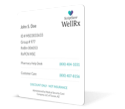What Medications Are Safe During Pregnancy?
August 25, 2020
Prescription Drugs, Your Health & Wellness

If you are pregnant or are planning to be, one of the first questions you’ll have is, “what medications can I take and which ones are not safe during pregnancy?” For the best answer to this question, start by having a discussion with your doctor. Discuss what medications you are currently taking and be sure to follow his or her advice. In general, here is a list of common drugs that are safe during pregnancy.
Over-the-counter Pain Medications That Are Safe During Pregnancy
If you have mild aches and pains during pregnancy, you can safely use Tylenol (acetaminophen). Be sure to avoid Advil or Motrin (ibuprofen), Aleve (naproxen), and other nonsteroidal anti-inflammatory drugs (NSAIDS). Taking an NSAID or aspirin early on in a pregnancy can increase the risk of birth defects or even miscarriage.
What Cold and Sinus Medications Are Safe During Pregnancy?
Most over-the-counter cold and allergy medications are safe to take during pregnancy, including:
- Diphenhydramine (Benadryl)
- Dextromethorphan (Robitussin)
- Guaifenesin (Mucinex)
- Mentholated or non-mentholated cough drops
- Pseudoephedrine (Sudafed)
- Acetaminophen (Tylenol)
- Saline nasal drops or spray
However, always talk to your doctor, and consider trying non-drug remedies first. Also be careful with multi-symptom relief drugs, or with Sustained Action (SA) forms of medications. NyQuil and its generic equivalents should be avoided since this medication contains alcohol.
How to Treat the Flu While Pregnant
It is usually safe for pregnant women to treat the flu with Tamiflu (oseltamivir). Keep in mind that a high fever can lead to birth defects or preterm birth, so your doctor may recommend Tamiflu to help lessen the effects of the flu. Always seek advice from a medical professional if you develop flu-like symptoms while pregnant, including:
- Fever
- Chills
- Muscle aches
- Cough (dry or with phlegm)
- Congestion
- Runny nose
- Headache
- Fatigue
Stomach Medications You Can Take While Pregnant
If you’re suffering from constipation, diarrhea, nausea, or other gastrointestinal symptoms, you can use a variety of medications to relieve your symptoms.
Diarrhea
You can safely use these medications after 12 weeks of pregnancy, and only for 24 hours:
- Loperamide (Imodium)
- Kaopectate
- Parepectolin
Nausea
- Emetrex
- Emetrol (unless you are diabetic)
- Vitamin B6 (100 mg)
Constipation
- Citrucil
- Colace
- Fiberall/Fibercon
- Metamucil
- Milk of Magnesia
- Senekot
Indigestion and Heartburn
- Tums
- Maalox
- Mylanta
- Pepcid
Are Antibiotics Safe During Pregnancy?
Yes, antibiotics are usually safe during pregnancy. However, tetracycline and doxycycline can cause discoloration of an infant’s teeth, so it’s safest to avoid them. Always follow your doctor’s advice for your own unique situation. Here are some types of antibiotics that are commonly prescribed for pregnant women:
- Penicillins (amoxicillin or ampicillin)
- Cephalosporins (cefaclor or cephalexin)
- Erythromycin
- Clindamycin
Are Yeast Infection Treatments Safe?
You can safely take Monistat, Gynelotrimin, or Terazol during pregnancy. However, avoid diflucan or fluconzaole oral pills. In some observational studies, pregnant women who took these medications had babies with birth defects.
Can You Take Antidepressants and Anti-Anxiety Medications While Pregnant?
There is mixed research about the safety of antidepressants and anti-anxiety medications for pregnant women. Some risks have been identified. For example, benzodiazepines (Valium and Xanax) are not recommended because they may cause problems like orofacial clefts, hypotonia, apnea, and feeding difficulties. Selective Serotonin Reuptake Inhibitors (SSRIs) have been linked to birth defects in some studies, but not others. Tricyclic Antidepressants (TCAs) may cause preterm births and other complications.
However, there are also risks to leaving a psychiatric disorder untreated. Women with depression are at increased risk of certain medical conditions, and they may not properly care for themselves during or after pregnancy. It’s important for pregnant women to tend to their mental health so that they can properly care for the baby.
Can You Keep Taking Prescriptions for Chronic Conditions?
This question needs to be considered on a case-by-case basis with your doctor. The harmful effects of not treating a chronic condition will often outweigh the risks of birth defects from medication. However, only your doctor and you can make that decision.
Be Careful with Supplements
One more thing to note is that supplements are risky during pregnancy. Since dietary and herbal supplements are regulated by the FDA as food, not drugs, their effects are not fully understood. It’s best to avoid any supplements beyond what your doctor has prescribed.
Related: What to Know About Drug Interactions
Keep in mind that only your doctor can make the best recommendation for you. As soon as you find out you’re pregnant, you should make an appointment with your primary care provider and discuss what medications you should avoid.
How To Save On Prescription Medications
Whether you are insured or uninsured, pregnancy and birth can be expensive. If you take prescription drugs or have been newly prescribed a medication, ScriptSave WellRx can help you find the best cash prices.
Simply type your prescription into our easy-to-use price comparison search and we’ll show you the lowest cash prices at local pharmacies. You can also easily find savings on the go using the ScriptSave WellRx mobile app. Download the app and search for the best prescription prices anywhere, at any time. For even more features, like our virtual medicine chest and grocery guidance tool, create a free ScriptSave WellRx account!
Create Account
Recommended Articles









